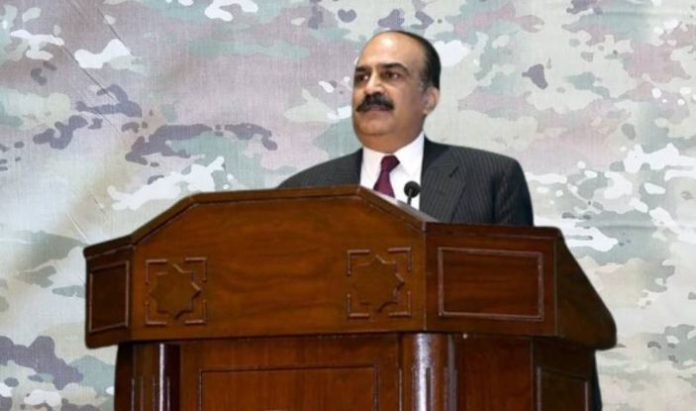ISLAMABAD: The federal cabinet on Monday officially endorsed the appointment of Lieutenant General Munir Afsar as the Chairman of the National Database and Registration Authority (NADRA).
The decision came following the receipt of a summary containing three recommended candidates from the interior ministry.
The selection committee had thoughtfully shortlisted three individuals for the role and after extensive deliberation, Lieutenant General Munir Afsar was chosen as the new chairman, as outlined in the official announcement from Prime Minister’s Office.
Subsequently, a notification was promptly issued to formalize his appointment, with immediate effect.
A three-star general Lieutenant General Munir Afsar achieved this rank in October 2022.
His impressive career has been marked by substantial experience in IT-related technical development and management within the Pakistan Army as well as his service with Pakistan’s Mission in the United Nations (UN).
Notably, Lieutenant General Afsar has been awarded the Hilal-e-Imtiaz (Military) for his outstanding contributions.
He holds an MPhil in Public Policy and National Security Management, and during the 2010 floods, he authored a research paper on public policy response within the Geographic Information Systems (GIS) department.
The newly-appointed NADRA chairman completed his MS in GIS and remote sensing and received recognition through a presidential award for his paper on rapid geospatial data generation via photometry.
Additionally, he holds an MS in National Resource Strategy and specializes in C&IT Industry and Supply Chain Management from NDU Washington.
Currently, Lieutenant General Afsar is pursuing his PhD in Remote Sensing at NUST Islamabad which focuses on the detection of plant diseases through the innovative integration of remote sensing and artificial intelligence.
His comprehensive contributions to the field have led to several research publications encompassing various aspects of IT and GIS.
In terms of his IT-related experience, he served as a Military Geographic Information Systems (GIS) Officer at the UN.
He also played a pivotal role in the development of a GIS application for flood recovery during the 2010 floods in Pakistan.
Furthermore, during his tenure as a Major General, he assumed the position of Director General of the DG Command, Control, Communication, Computers, and Intelligence (C41) Directorate, responsible for the overarching management of IT.
Following his promotion to the rank of Lieutenant General, he continued his service as the Inspector General of Communication and IT, and later as the Commander of Pakistan Army Cyber Command.

















